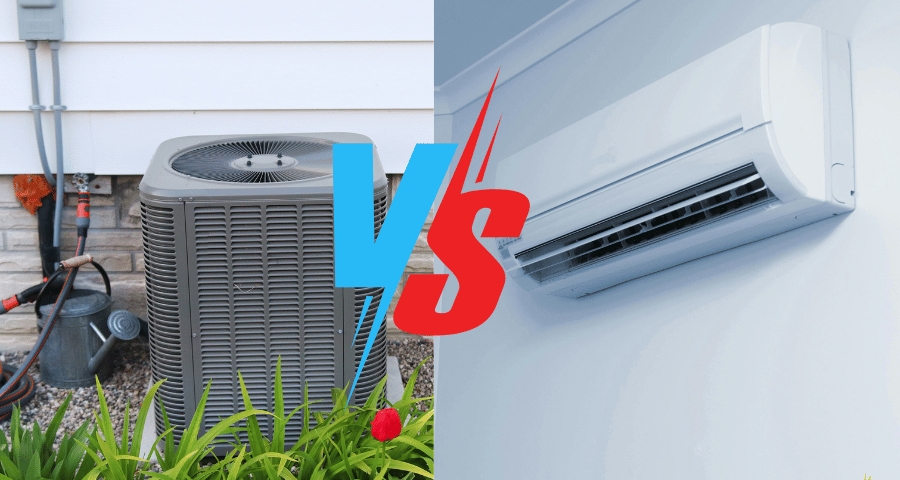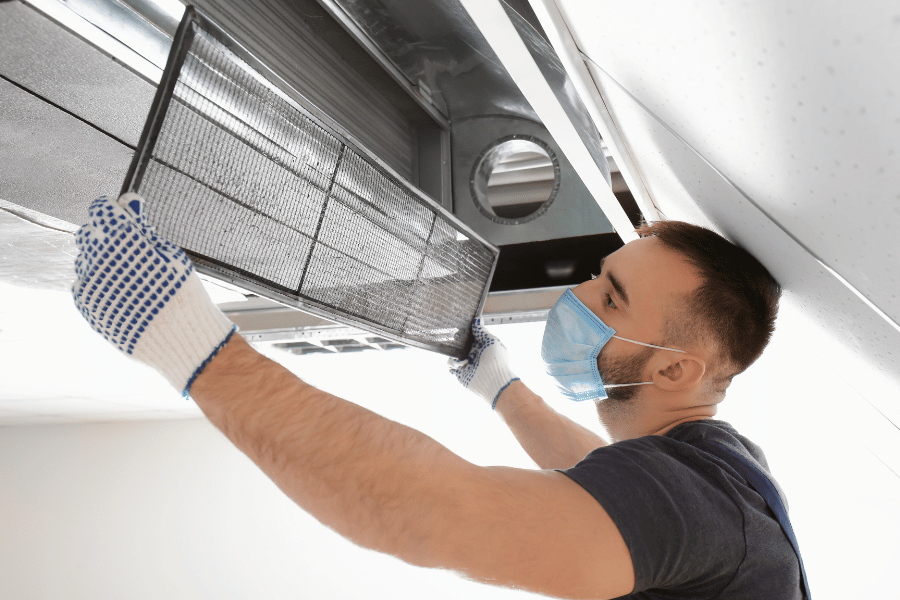
Central Air vs. Ductless AC: Which Cooling System Is Best for Your Suffolk County Home?
Choosing the right cooling system for your Suffolk County home isn’t always easy — especially with today’s energy-efficient options. Two of the most common systems are central air conditioning and ductless mini split systems. While both offer excellent comfort, each comes with its own benefits and considerations.
In this guide, we’ll compare central air vs ductless AC to help you decide which system makes the most sense for your home, comfort needs, and budget.
Comparing Central Air and Ductless AC for Suffolk County Homes
Installation Requirements
Central Air: Requires ductwork throughout your home. Great for newer homes or homes that already have ducts in place.
Ductless AC: Requires no ductwork. Ideal for older homes, additions, or areas without existing HVAC infrastructure.
System Design
Central Air: Uses a single outdoor unit connected to one indoor air handler and a network of ducts to distribute air throughout the home.
Ductless AC: Uses one outdoor unit connected to one or more indoor air handlers (mini splits) installed in individual rooms. Each one operates independently.
Energy Efficiency
Central Air: Modern units are efficient, but energy can be lost through leaky ductwork — sometimes up to 30%.
Ductless AC: Extremely efficient since there’s no ductwork involved. Offers zoned cooling, which saves energy by only cooling the rooms you use.
Upfront Cost
Central Air: Typically more affordable per square foot if ductwork is already in place.
Ductless AC: Slightly more expensive upfront per unit, especially if you're outfitting multiple rooms, but often pays off in energy savings over time.
Aesthetic and Space Considerations
Central Air: Vents are built into walls or ceilings and are generally unobtrusive.
Ductless AC: Mini split units are visible on walls or ceilings. Modern designs are sleek, but they are more noticeable than central vents.
Maintenance and Upkeep
Central Air: Requires annual maintenance of both the system and the ductwork.
Ductless AC: Easier to clean and maintain, with washable filters in each indoor unit. No duct cleaning required.
Noise Levels
Central Air: Generally quiet, especially newer models. Sound is centralized in the outdoor unit.
Ductless AC: Also very quiet — indoor units operate at low decibels, and the compressor is outdoors.
Which System Is Right for You?
Choose central air if:
- Your home already has ductwork in place
- You prefer a traditional, hidden cooling system
- You're cooling a large space with consistent usage
Choose ductless AC if:
- Your home has no ducts or limited space
- You want room-by-room temperature control
- You’re adding on to your home or finishing a basement or garage
Why Suffolk County Homeowners Trust Our Team
At Heaterman VP Heating & Air Conditioning, we help you weigh the pros and cons of each system based on your home, layout, and budget. We install both central and ductless systems from top brands like Mitsubishi, Carrier, and Bosch.
Explore Ductless Mini Split Systems
Learn About Our Air Conditioning Services
Did You Know? Homes with ductless systems often qualify for energy efficiency rebates that can cover a significant portion of installation costs.
FAQs
Q: Can I combine central and ductless systems?
A: Yes. Hybrid systems are becoming more common, especially in homes with additions or converted spaces.
Q: Do ductless systems work in winter?
A: Yes! Many ductless systems also provide heat via heat pump technology.
Q: Are ductless systems more efficient than central air?
A: In many cases, yes — especially in homes with inconsistent usage or no ductwork.
Q: What about humidity control?
A: Both systems can manage humidity. Proper sizing and installation are key.
Still unsure which cooling system is right for your home?
Explore all your options on our Cooling Services in Suffolk County page — including central air installation, ductless mini splits, and expert guidance from our team.




